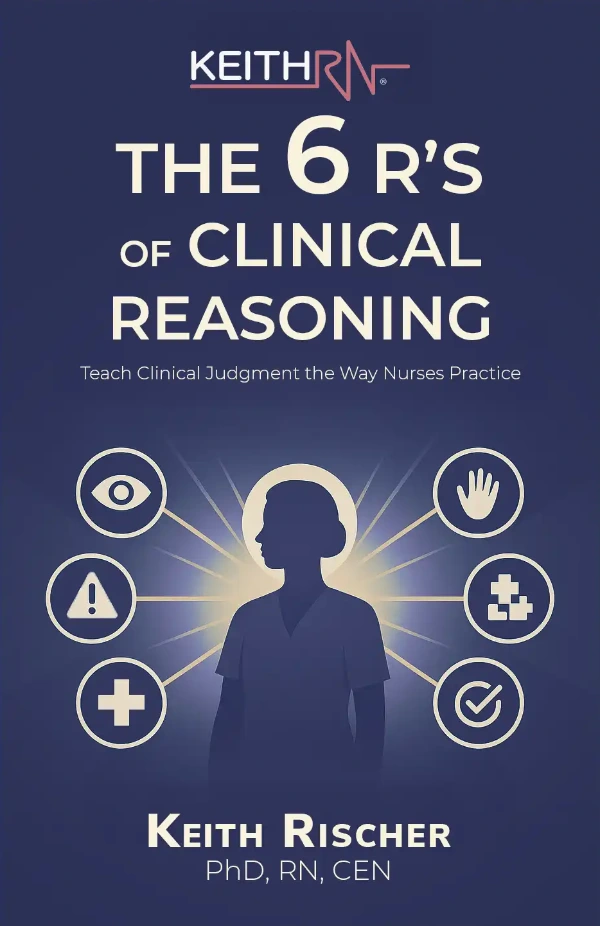
The transition to practice gap is a commonly discussed reality that new nurses experience as they transition from student to practicing nurse (Barbagallo, 2021). One aspect of nursing education that can contribute to the widening of this gap is the emphasis on nursing professionalism but a lack of discussion of nursing culture.
One way to bridge this gap is to introduce nursing students not just to the concept of the professional role of nurses but to introduce them to the culture of nursing as well. Think: not just what a nurse does but how each individual nurse fits into the nursing community.
There are three crucial aspects that must be discussed when helping students understand the realities of this unseen “nurse culture.”
What is culture shock?
Nursing students must be introduced to the concept that nursing is a culture, and that just like with entering any new culture, there is a layer of cultural shock when walking into nursing culture as a new nurse (Duchscher, 2012). Becoming a nurse is “a new culture for the entrant.”
The newcomer discovers that there are unfamiliar cues, norms, and expectations” (Kramer, 1974). Therefore, adjusting to this nursing culture becomes paramount for a new nurse, and much of their transition process rests on how they are able to navigate and adjust to their new culture (Duchscher, 2012).
How can students adapt to their new culture?
To become a part of nursing culture, nursing students must move from a simple macro understanding of nursing, that is “the public face of a profession” (Wackerhausen, 2009), to a micro understanding of nursing, that is to “acquire and behave according to the (tacit) ‘cultural dimensions’ of the profession” (Wackerhausen, 2009).
Obtaining this micro perception of nursing requires a new nurse to “attune oneself to, and consequently embody a whole group of rules, beliefs, and habits: a way of speaking, a way of questioning, a way of understanding and explaining, a way of seeing and valuing, a way of telling narratives, etc.” (Wackerhausen, 2009).
How does nurse culture impact patient care?
Not only does nurse culture become key to a new nurse’s perception of self, but nurse culture also impacts nurses’ “work experiences and decision-making processes, which can affect outcomes including nurse wellbeing, practice behaviors and adherence to unit policies” (Leep-Lazar, 2023).
How a new nurse is able to engage with the culture around them will impact how they are able to do their job. Therefore, navigating nurse culture is a crucial skill for new nurses to have that they must be equipped with throughout their schooling.
My Story
I began to realize the importance of understanding nurse culture shortly after I became a nurse. I underwent my first year as a nurse on the same floor where I had been a nursing assistant. Even though I had been a part of this same environment for two years prior to transitioning, I still experienced a significant amount of culture shock because, up until that point, I didn’t truly realize what being a nurse meant.
Looking back, the way I personally could have been better prepared was if I had embarked on that year with an understanding of what nurse culture is and how one can undergo a culture shock experience as a new nurse if they have not been introduced to nursing as being its own culture.
Some ways in which educators can introduce nursing students to nurse culture, in order to help lessen the culture shock experience later on, include:
- Bringing in articles or news updates from what is happening in the nurse community. What research is being done for nurses, by nurses? What trends are occurring in the nursing community on social media and how is that impacting their perception of nursing? What nurses strikes are happening and what are those nurses trying to advocate for?
- Incorporating student reflections on what observations they are making about the nursing communities around them. Nursing students are often asked to reflect on patient observations in assignments pertaining to clinical, yet it is imperative that they are also asked about the nursing environments in which they are participating. What are they learning, not just about patient care, but what are they learning about actively being a nurse?
- Providing a safe space for students to debrief. Whether it be one on one with an instructor or professor, as a small group post clinical, or even at the start of class, wellness check-ins of what students are noticing about the raw truth of what it takes to be part of the nursing community will help them build tools to navigate the culture prior to their full immersion into it. This is a way that both the hard parts and the good parts of being a nurse can be talked about openly and honestly.
In order to avoid some of the cultural shock that impacts a new nurse’s transition into practice, nursing students must be introduced to nursing culture throughout their schooling. It is up to the nursing community, preceptors, clinical instructors, professors, etc., to welcome nursing students into the community by teaching them the customs that are part of our culture.
Being a registered nurse is not just a professional identity, it is also a personal identity.
To bring this cultural immersion to nursing students, we can begin by doing our own reflecting on the following questions:
- How do you see nursing culture being discussed in your department or curriculum? What areas do you feel strong in that you would like to continue? Or what areas of growth do you see needing to be further developed?
- In what ways do you wish you had been introduced to nurse culture in school? Now, given your current position, how can those things you yourself wished for be implemented?
Closing Thoughts
When a student becomes a nurse, they don’t just step into a profession, they step into a culture that contains multitudes of nuances. By introducing students little by little to the culture of nursing and providing them with the space to reflect and debrief what they learn and witness, they will better understand the culture they are walking into when they graduate and become fully-fledged nurses.
After all, “the final aspect of growth encompasses the ability to make sense of everything” (Barbagallo, 2021). As we help nursing students make sense of our culture, we are helping them grow, not just as professionals, but as people and citizens of our profession to make a difference in all they do!
Recommended Resources
Some resources that give insight into different aspects of nurse culture include:
- For nursing news: thenursingbeat.com
- For nurse wellness: operationhappynurse.com
- For nurse advocacy: nationalnursesunited.org
References
Barbagallo, M. (2021). Nursing students’ perceptions and experiences of reflective practice: a qualitative meta-synthesis. Teaching and Learning in Nursing, 16 (1), 24-31. https://doi.org/10.1016/j.teln.2020.07.006
Boychuk Duchscher, J. E. (2012). From surviving to thriving: Navigating the first year of professional nursing practice (2nd ed.). Wildwood, Saskatoon, Canada: Nursing the Future.
Kramer, M. (1974). Reality Shock: Why Nurses Leave Nursing. The C.V. Mosby Company.
Leep-Lazar, K., & Witkoski Stimpfel, A. (2023). A dimensional analysis of nursing unit culture. Journal of Advanced Nursing, 80 (7), 2611-3001. DOI: 10.1111/jan.15985
Wackerhausen, S. (2009). Collaboration, professional identity and reflection across boundaries. Journal of Interprofessional Care, 23(5), 455-473.
Tenley Force, RN, BSN, MA
Tenley is a registered nurse from Southern California who graduated with a B.S.N. from Biola University. Her nursing background includes med-surg respiratory, disaster response, public health, and nursing education. She is a current fellow at Duke Divinity School in the Theology, Medicine, and Culture Initiative and holds an M.A. from the Talbot School of Theology.
Tenley is a published author specializing in self-help for new nurses. Her book New: Nursing and the Art of Being Human debuted in 2023, written with the goal of supporting new nurses as they attempt to hold on to their holistic sense of self during their difficult first year of practice. Contact Tenley at tenley@tenleyforce.com.
The Ultimate Solution to Develop Clinical Judgment Skills
KeithRN’s Think Like a Nurse Membership
Access exclusive active learning resources for faculty and students, including KeithRN Case Studies, making it your go-to resource.







